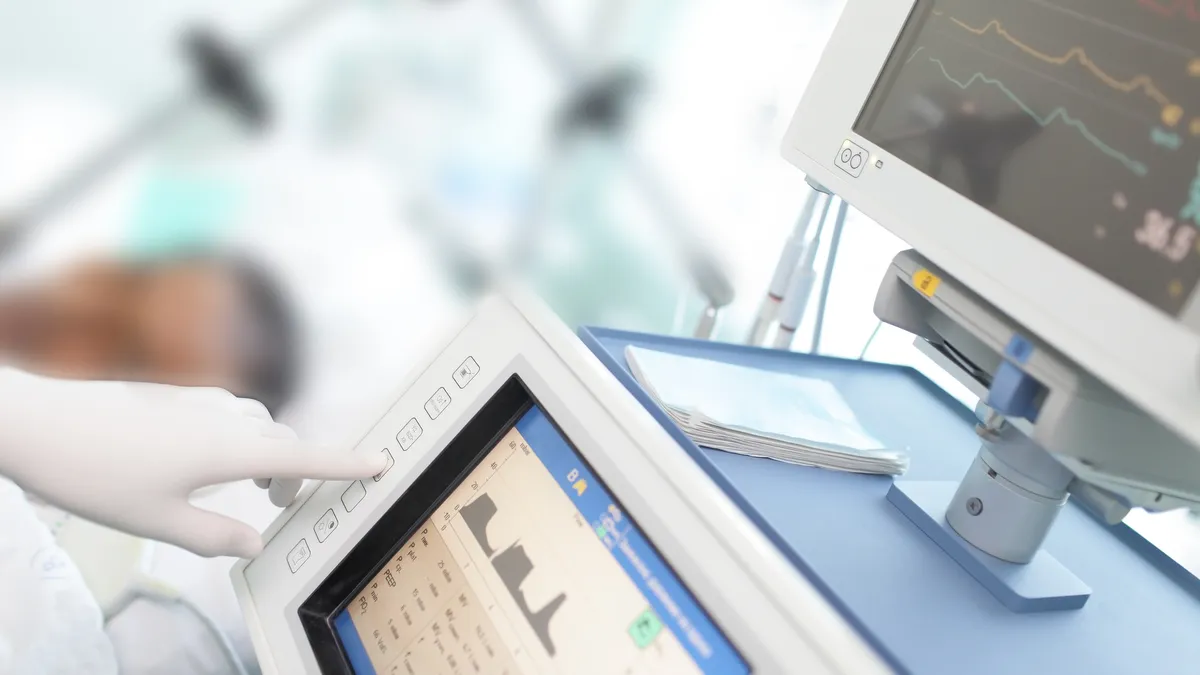Dive Brief:
- ResMed late Thursday announced its fiscal third quarter results with revenue of $769.5 million, a 16% year-over-year increase fueled by growth in its ventilator business in response to the coronavirus pandemic.
-
In the quarter, CEO Mick Farrell said the company tripled output of ventilators and scaled up ventilation mask production more than tenfold. "We have seen tailwinds in our business from increased demand" for invasive and non-invasive ventilators, he added, estimating the company generated about $35 million in coronavirus-related revenues in the period.
-
While ventilator demand is likely to remain strong in the fourth quarter, a Friday report from Needham analysts predicts share losses in the sleep disorders business and slower growth of its software products may offset some of the coronavirus tailwinds.
Dive Insight:
ResMed's revenue in the U.S., Canada, and Latin America grew by 12%, excluding software as a service, while revenue in the combined Europe, Asia, and other regions grew by 27% on a constant currency basis. The $35 million in incremental revenue related to the ventilator surge from COVID-19 represents about 4.5% of the overall $769.5 million in revenue for the third quarter.
With ResMed operating at three times last year's ventilator production capacity, Farrell said the company is doing its best to meet the high global demand for the breathing machines. "A key element in our ability to deliver is our ability to source critical components and ship product in response to the incredible demand as this COVID-19 virus moves around the world," he said during Thursday's call with investors.
While sales of ventilators and ventilator masks have increased, Farrell told investors the pandemic is having a negative impact on ResMed's sleep device revenue. The company has seen double-digit declines in sleep disorder diagnosis rates in affected markets as a result of shutdowns by healthcare facilities that conduct sleep testing.
"Many sleep clinics, especially hospital clinics, are temporarily closed and many pulmonary and critical care physicians that often work in sleep clinics are shifting their focus to treat COVID-19 patients," Farrell said. "As we look forward, there is uncertainty and it's not clear to what extent the upsurge in ventilation device and ventilation mask revenue will offset the decline in sleep device revenue."
Jefferies analysts wrote in a note to investors late Thursday they see overall ResMed sleep volumes trending down between 10% and 15% through April, extending through the end of the fourth quarter in June and "likely deeper into the calendar."
William Blair analysts cast a more optimistic tone, opining in a note that the results "suggest ResMed can potentially sustain top-line growth in the near term, and emerge from COVID-19 ready for reaccelerated growth in its underpenetrated and large core markets (particularly sleep)."
Farrell said the company continues to execute on its long-term strategy of providing customers with digital health technologies and out-of-hospital management software. He contends ResMed had a "running start" in the digital health category prior to the pandemic and is currently working with customers to help them leverage remote monitoring of ventilation devices to minimize unneeded person-to-person interactions.
"One of the few positive benefits out of this awful crisis is that it has brought to the forefront the importance of digital health for the health and safety of respiratory therapists, respiratory nurses and critical care physicians," Farrell said, noting that even with personal protective equipment there are significant risks for clinicians treating COVID-19 patients. "The more we can establish non-contact digital health pathways at scale, the better the health of therapists, nurses, and physicians."












